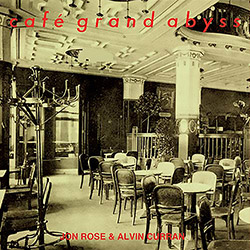
Two masterful, virtuosic and inquiring musicians--Alvin Curran on piano, sampler & shofar, and Jon Rose on violins, 6-string drain pipe and singing saw--in an incredible album of improvisation that seems to know no boundary, farcically claiming to be revisiting their earliest experiences in cocktail club bands, but instead shredding the concept with breakneck speed and surprise; wow!
Out of Stock
Quantity in Basket: None
Log In to use our Wish List
Shipping Weight: 3.00 units
Sample The Album:
Alvin Curran-piano, sampler, shofar
Jon Rose-violin, tenor violin, 6 string drain pipe, singing saw
Click an artist name above to see in-stock items for that artist.
UPC: 644216626229
Label: Recommended Records
Catalog ID: RERJRAC1
Squidco Product Code: 28268
Format: CD
Condition: New
Released: 2019
Country: UK
Packaging: Cardboard Gatefold
Tracks 1-4 recorded at Via Giovanni, in Rome, Italy, on April 25th, 2016, by Angelo Maria Farro.
Tracks 5-6 recorded in studio Exchange, in Sydney, Australia, on September 27th, 2018, by the artists.
"Jon and Alvin on terrifying form: Alvin spookily surefooted in his deployment of an often counterintuitive palette of sounds, and Jon just brilliant. Living legends: Alvin recently left 80 behind, Jon is facing down 70. The two have known each other since 1985, when they were both living in Berlin, and they've worked together on and off ever since.
On this CD they look back to their earlier careers, when they were gainfully employed in bread and butter club bands: Jon in the house band of Club Marconi in Sydney where, in addition to playing Italian favourites and film music, he backed funky soul singers and topless go-go troupes, and Alvin, who says: 'So embedded is the cocktail pianist in my music, there are times when I think in medium bounces, or up-2's, slow 4's or Viennese 3's with the accent on the delayed 1, offset by single triplet rest.' Curran doesn't scratch or filter his samples but takes them straight; it's the choice of the samples that leads away from the main path. Rose responds - or ignores - with regular and amplified tenor violins. And when Alvin reaches for the Shofar, Jon picks up his 3-metre drainpipe with strings. And did I mention the singing saw?"-ReR MegaCorp
"Musicians operating in the realm of instant synthesis (this usually translates as "finest improvisers") are defined by the ability to exploit the elusive qualities of information overload. What appears as a chaotic, and ultimately insufferable cacophony to idle ears and brains transmits instead a refreshing sensation of "cosmic clarity" (ha!) to people capable of sight-reading the profound score of legitimate diversity. When artists turn a plurality of discordant trajectories into a rational explanation, the unprejudiced witness instinctively knows that something special is happening.
Jon Rose and Alvin Curran have so much experience in the sonic field that even hinting at a fragment of their curricula sounds ridiculous. We're discussing performers who, among innumerable projects, have extracted consequential music from marine foghorns (Curran's Maritime Rites) and barbed wire fences (Rose and Hollis Taylor's Great Fences Of Australia). Meaning that these gentlemen belong to the scarcely populated category of humans who were born in sound. For them, there's no difference between a piano sonata, a ritual chant, an exchange of complex phrases on any given instrument, a troubled TV preacher, an industrial clangor. Regular folks making noise through their sheer nonsensical presence can sometimes be accepted as a part of the wholeness, if one's tolerant enough.
For the circumstance, the duo focused on improvisational structures for piano, sampler, shofar, violin, amplified tenor violin, 6-string drainpipe (!) and singing saw (!!). In the press blurb, Curran describes Café Grand Abyss as an "imaginary place" after enlightening us about the recurrence of "cocktail pianist" elements in otherwise non-figurative ways of approaching the improvisation. If imagination sounded so vivid for every being on the planet, most problems deriving from faulty minds would be solved once and for all.
Each event is meaningful: as time unfolds, infinitesimal occurrences specify a transition towards the truest conception of harmony. The latter is an abused term in the mouths of the ignorant, and this writer is getting increasingly reluctant in using it. However, having scrutinized a track named "The Marcue Problem" the lingering feeling is that of standing extremely close to the polyphonic quintessence of everything we hear, feel and live while realizing - yet again - that nothing can be pinned down by a pitiful description.
In this record, "intricacy" rhymes with "poetry". Virtuosity is a waterwheel refracting the sun rays of a superior counterpoint typified by an impressive speed of response. Nonetheless, the interplay is entirely deprived of egoistic issues and purposes, positively influencing the listener's mood. This melange of reminiscence, quick detours, lyrical openings, animal agitation, crumbled meanings and ironic covers - check "Tequila For Two" - attests an acoustic (and mental) pliability that can only be yielded by a lifetime spent investigating resonant molecules, whatever the source. The necessity of so-called communication that has brought countless weak souls to relinquish silent listening to privilege analphabetic intellectualism and enforced social gathering is all but forgotten."-Massimo Ricci, Toneshift
Get additional information at Toneshift
Artist Biographies
• Show Bio for Alvin Curran "Born December 13, 1938, Providence, Rhode Island. From five years: piano lessons, trombone, marching bands, Synagogue chants, Jazz, and his father's dance bands. Becomes an artist at age 13 in an apple tree at the house of his lifelong friend, poet Clark Coolidge. Hears Spike Jones, the Rhode Island Philharmonic, Satchmo, The Boston Symphony Orcherstra, Art Tatum, Charlie Parker, The Band of America, Thelonius Monk, Gerry Mulligan, Miles Davis, Coltrane, Bartok and Christian Wolff. With a fortuitous bang, he begins his musical journey (1965 in Rome) as co-founder of the radical music collective Musica Elettronica Viva, as a solo performer, and as a composer for Rome's avantgarde theater scene. In the 70's, he creates a poetic series of solo works for synthesizer, voice, taped sounds and found objects. Seeking to develop new musical spaces, and now considered one of the leading figures in making music outside of the concert halls -- he develops a series of concerts for lakes, ports, parks, buildings, quarries and caves -- his natural laboratories. In the 1980's, he extends the ideas of musical geography by creating simultaneous radio concerts for three, then six large ensembles performing together from many European Capitals. By connecting digital samplers to MIDI Grands (Diskklavier) and computers, since 1987, he produces an enriched body of solo performance works -- an ideal synthesis between the concert hall and all sounding phenomena in the world. He creates a visually striking series of sound installations, some of them in collaboration with visual artists including Paul Klerr, Melissa Gould, Kristin Jones, Pietro Fortuna, Umberto Bignardi, Uli Sigg. Throughout these years he continues to write numerous pieces for radio and for acoustic instruments. Studies composition with Ron Nelson (B.A. Brown University 1960) and with Elliott Carter and Mel Powell ( M.Mus., Yale School of Music 1963). During summer vacations, plays European crossings with the "Brunotes" on the Holland American Line, in a Greek Dance Band in the Catskills, and in the Dunes Hotel in Las Vegas. Continues studies and friendship with Carter in Berlin (1964 Ford Foundation Grant), meets Stravinsky, Xenakis, Berio, Yuji Takahashi, Andriessen, Remo Remotti, and above all Rzewski. Goes to Darmstadt, hangs with Babbitt and Earl Brown, hears Stockhausen and Ligeti. Goes to Rome with Joel Chadabe and plays piano in bars on via Veneto, meets Franco Evangelisti and Cornelius Cardew. In the Musica Elettronica Viva years (1966 -1971 in Rome), performs in over 200 concerts in Europe and the USA with Teitelbaum and Rzewski, Carol Plantamura, Ivan Vandor, Alan Bryant and Jon Phetteplace; and makes significant artistic encounters with Giuseppe Chiari, Edith Schloss, AMM, Cardew, Steve Lacy, Michelangelo Pistoletto, Steve ben Israel, Anthony Braxton, Simone Forti, Steve Reich, Joan La Barbara, Michael Nyman, La Monte Young, Trisha Brown, Ashley, Behrman, Gordon Mumma, Alvin Lucier, Larry Austin, Bill Smith, Ketoff, Robert Moog, Nuova Consonanza, MEV2, Meme Perlini, Mario Ricci, Maria Monti, Prima Materia, Ron Bunzl, Phil Glass, Charlemagne Palestine, Terry Riley, George Lewis, Evan Parker, Gregory Reeves, Serge Tcherepnin, Kosugi, Pulsa, Maryanne Amacher, John Cage, David Tudor, Morton Feldman. Scelsi becomes his friend and mentor. From 1975-80 taught vocal improvisation at the Accademia Nazionale d'Arte Drammatica (Rome) and from 1991 to 2006 was the Milhaud Professor of Composition at Mills College in Oakland, California. Currently teaching privately in Rome in addition to master classes, residencies, and lectures at Oberlin, Peabody, Brown, Berkeley, The Hague, Haifa, Bolzano, Northwestern, Yale, Beijing, etc." ^ Hide Bio for Alvin Curran • Show Bio for Jon Rose "Jon Rose started playing the violin at 7 years old, after winning a music scholarship to King's School Rochester. He gave up formal music education at the age of 15 and from then on, was mostly self-taught. Throughout the 1970's, first in England then in Australia, he played, composed and studied in a large variety of music genres - from sitar playing to country & western; from 'new music' composition to commercial studio session work; from Bebop to Italian club bands; from Big Band serial composition to Sound Installations. He became the central figure in the development of Free Improvisation in Australia, performing in almost every Art Gallery, Jazz and Rock club in the country - either solo or with an international pool of improvising musicians called The Relative Band. In 1986, he moved to Berlin in order to more fully realise his on-going project (of some 25 years): The Relative Violin). This is the development of a Total Artform based around the one instrument. Necessary to this concept has been innovation in the fields of new instrument design (over 20 deconstructed violin instruments including the legendary double piston triple neck wheeling violin, environmental performance (eg. playing fences in the Australian outback using the violin as a bow), new instrumental techniques (tested sometimes in uninterrupted marathon concerts of up to 12 hours long), both analogue (built into the violins themselves) and the more recently inter-active electronics (3 bowing to Midi systems)... plus using the mediums of radio (over 20 major International productions for radio stations like ABC, BBC, WDR, SR, BR, Radio France, RAI, ORF, SFB, etc including 'Eine Violine für Valentin', 'The Long Sufferings of Anna Magdalena Bach' and 'Breadfruit'), live-performance-film, video and television to create a new, alternative, personal and revised history for THE VIOLIN. Jon Rose performs his group projects and solo music in upwards of 50 concerts every year - in North America, Japan, Australia, South America, China, Scandinavia and just about every country in West & East Europe. He is featured regularly in the main festivals of New Music, Jazz and Sound Art e.g. Strasbourg New Music Festival; New Music America; Moers New Jazz Festival; European Media Festival; The Vienna Festival; Ars Elektronica; The Northsea Jazz Festival; Dokumenta; Roma-Europa Festival; Festival D'Automne; Festival Musique Actuelle; The Berlin Jazz Festival, etc. Rose has also been invited to curate Contemporary Music Festivals in Germany (e.g. Berlin Urbane Aboriginale) and Austria (e.g. Wels 'Unlimited'). He has curated his own festival "String 'em up" of radical string players and their instruments, taking place in Podewil, Berlin in 1998 and Dodorama and V2, Rotterdam in 1999 , Tonic, New York in 2000, Mains D'Oeuvres, Paris in 2002, and IPR, New york in 2010. Jon Rose has appeared on over 100 records and CD's; He has worked with many of the innovators and mavericks in contemporary music such as The Kronos String Quartet, John Zorn, Derek Bailey, Butch Morris, Barry Guy, Fred Frith, Joelle Leandre, Connie Bauer, Johannes Bauer, Chris Cutler, Otomo Yoshihide, KK Null, Alex Von Schlippenbach, Toshinori Kondo, Francis-Marie Uitti, Alvin Curran, Evan Parker, Paul Lovens, Phil Minton, Shelley Hirsh, Mark Dresser, Ben Patterson, Emmett Williams, John Cage, Joel Ryan, Peter Kowald, Borah Borgmann, Tristan Honsinger, Mari Kimura, The Soldier String Quartet, Borah Bergman, Sainko, Tristan Honsinger, Tony Oxley, Cor Fuhler, Steve Beresford, Eugene Chadbourne, Bob Ostertag, Malcolm Goldstein, Jim Denley, David Moss, Miya Masaoka, Barre Phillips, Roger Turner, George Lewis, Gunter Christmann, Davy Williams, Misha Mengelberg, Elliott Sharpe, Elena Kats Chernin, Lauren Newton, Uli Gumpert, Christian Marclay, Richard Barret, Pierre Henry, etc). In 1989, in co-operation with New Music Festival 'Inventionen' (Berlin), he directed the first 'Relative Violin Festival' with over 50 violinists from around the world.In 1991, he directed "Das Rosenberg Museum", a surrealist satire commissioned by German Television's ZDF, this piece later became the first interactive video ever to be controlled by a violin bow. Other films/videos include 'Café Central' and 'Shopping' (both made for ORF, Austria). The Rosenberg Museum does actually exist. Jon Rose is also the originator of 4 books - The Pink Violin and Violin Music in the Age of Shopping (both published by NMA, Melbourne); "Music of Place: Reclaiming A Practice", and rosenberg 3.0 - not violin music. Jon Rose is currently performing Palimpolin - Hyperstring 4, one of a number of highly acclaimed works for violin and inter-active software. In addition there are performances of Violin Factory featuring large string orchestras and interactive video in Europe and Australia. His group projects include Strung, Violin Music in the Age of Shopping (with the likes of Chris Cutler, Lauren Newton, Otomo Yoshihide, etc); the infamous Berlin Noise-Impro-Rock Band Slawterhaus (with Johannes Bauer, Dietmar Diesner & Peter Hollinger); The interactive 'Badminton' game Perks, based on the musical innovations and perversions of Australian freak composer Percy Grainger; and there are five established improvising trios which are currently available... The Exiles (with Tony Buck & Joe Williamson), and The Kryonics (with Aleks Kolkowski & Matthias Bauer), Artery (with Chris Abrahams and Clayton Thomas), Futch (with Thomas Lehn and Johannes Bauer), Strike (with Clayton Thomas and Mike Majkowski) and the bicycle-powered chamber orchestra composition Pursuit. The duo Temperament was formed in 2000 with pianist Veryan Weston, specialising in improvisation with different tunings (Just, 19 tone, etc) for the keyboards and various scordatura for the violins. Other on going projects are Australia Ad Lib which documents alternative music practice in Australia and the duo Great Fences of Australia, a collaboration with US violinist Hollis Taylor. Since 2001 Jon Rose is again based full time in Australia: in 2005 he finished a major commission Pannikin for The Melbourne Festival, and was awarded a 2 year fellowship from The Australia Council to research and develop The Ball Project. In 2009 The Kronos String Quartet and The Sydney Opera House commissioned Music from 4 Fences. From 2008-2010 Jon Rose collaborated with Robin Fox on the Transmission Project and he received a further grant in 2009 from The Australia Council to work with KMI in the USA, on the K-Bow. He is also a member of the Advisory Council for The International Society for Improvised Music (ISIM). The Music Board of The Australia Council has honored Jon Rose with its most prestigious award for life time achievement and contribution to Australian music, The Don Banks Prize 2012. Currency House has recently published his call to action "Music of Place: Reclaiming A Practice". " ^ Hide Bio for Jon Rose
11/20/2024
Have a better biography or biography source? Please Contact Us so that we can update this biography.
11/20/2024
Have a better biography or biography source? Please Contact Us so that we can update this biography.
Track Listing:
1. Adorno's Boiled Egg 12:27
2. Benjamin At The Border 23:09
3. Shofarshogood 2:45
4. The Marcuse Problem 13:28
5. Marx On Safari 8:11
6. Tequila For Two 2:44
Improvised Music
Free Improvisation
Electro-Acoustic
Electro-Acoustic Improv
Piano & Keyboards
Stringed Instruments
Duo Recordings
European Improvisation, Composition and Experimental Forms
Australian Improvisers, Composers and Experimenters
Staff Picks & Recommended Items
Search for other titles on the label:
Recommended Records.


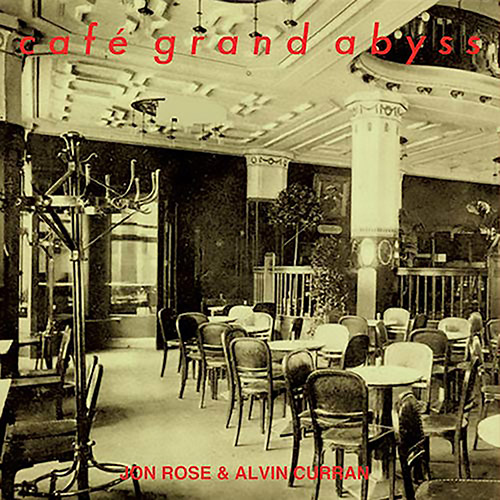
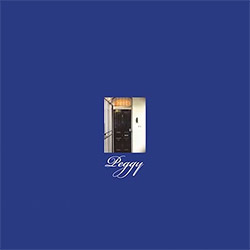
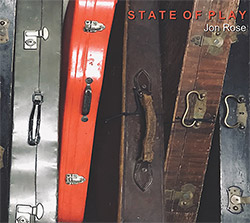
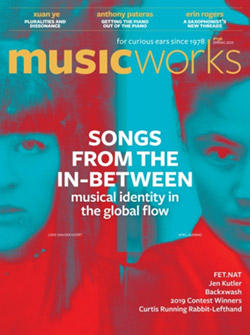
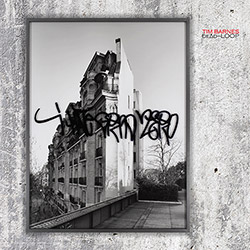
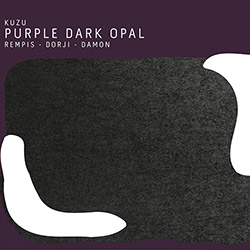
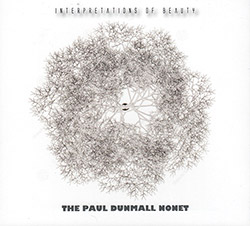
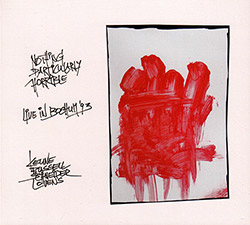
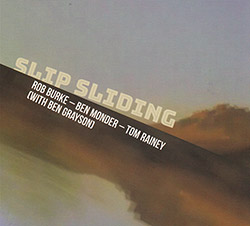
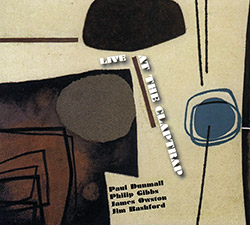
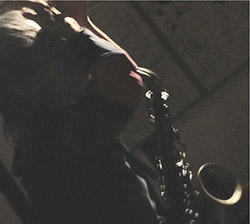
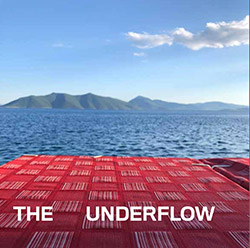
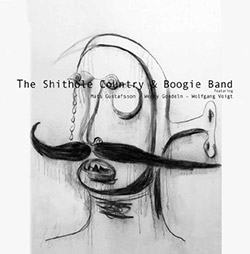
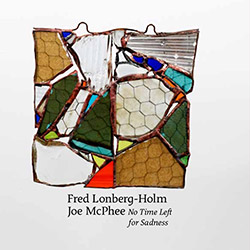
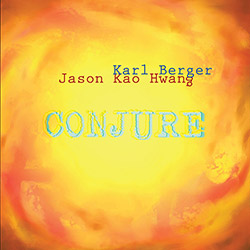

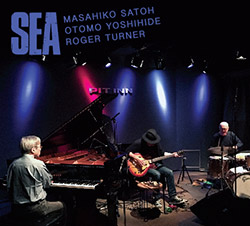

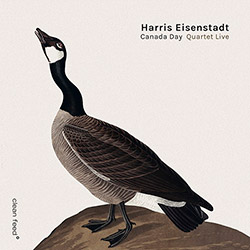
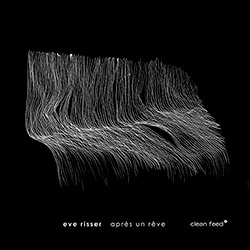



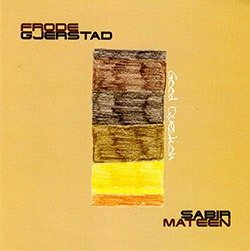
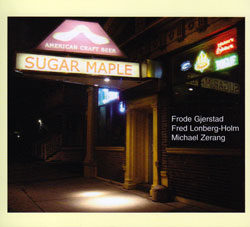
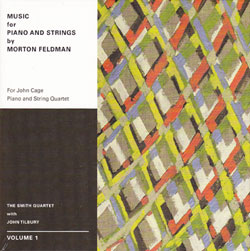
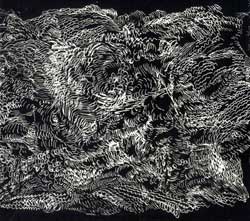


![Guy, Barry / Ken Vandermark: Occasional Poems [2 CDs]](https://www.teuthida.com/productImages/misc4/34849.jpg)
![Novoa / Carter / Mela Trio: Vol.1 [VINYL]](https://www.teuthida.com/productImages/misc4/35236.jpg)


![Elephant9 : Mythical River [VINYL]](https://www.teuthida.com/productImages/misc4/34624.jpg)
![Evans, Peter (Evans / Eldh / Black): Extra [VINYL]](https://www.teuthida.com/productImages/misc4/35279.jpg)

![McPhee, Joe: Straight Up, Without Wings [BOOK]](https://www.teuthida.com/productImages/misc4/35454.jpg)
![Jeck, Philip: rpm [2 CDs]](https://www.teuthida.com/productImages/misc4/35455.jpg)













![Barker / Parker / Irabagon: Bakunawa [VINYL]](https://www.teuthida.com/productImages/misc4/35533.jpg)
![Blaser, Samuel / Marc Ducret / Peter Bruun: Dark Was The Night, Cold Was The Ground [VINYL 10-inch]](https://www.teuthida.com/productImages/misc4/35492.jpg)








![Warren, Kenny (Warren / Hoffman / Ellman): Sweet World [VINYL]](https://www.teuthida.com/productImages/misc4/35451.jpg)




![Blake, Ran / Dave Knife Fabris: Live Amsterdam 2006, First Visit [CD + POSTCARDS]](https://www.teuthida.com/productImages/misc4/35275.jpg)













![DNS: Taking Big Bites Of The Khandas Three Cafes Deep [2 CDs]](https://www.teuthida.com/productImages/misc4/35334.jpg)




![Cleaver, Gerald: The Process [VINYL]](https://www.teuthida.com/productImages/misc4/34966.jpg)




![Alva Noto: HYbr:ID II [VINYL 2 LPs]](https://www.teuthida.com/productImages/misc4/35201.jpg)

![Baron, Derek / Luke Martin: Distinct and Concealed [CASSETTE + DOWNLOAD]](https://www.teuthida.com/productImages/misc4/35079.jpg)

![Lyle, Erica Dawn : Colonial Motels [CASSETTE + DOWNLOAD]](https://www.teuthida.com/productImages/misc4/35080.jpg)









![Sanna, Claudio: Compositori Sardi Contemporanei II [2 CDs]](https://www.teuthida.com/productImages/misc4/35317.jpg)







![Zurria, Manuel: Fame di Vento [3 CDs]](https://www.teuthida.com/productImages/misc4/35167.jpg)

![Granberg, Magnus / Nattens Inbrott / Skogen: Holde Traume, Kehret Wieder! [2 CDs]](https://www.teuthida.com/productImages/misc4/35038.jpg)
![Frey, Jurg: Outermost Melodie [2 CDs]](https://www.teuthida.com/productImages/misc4/35039.jpg)

![Pavone, Jessica: Reverse Bloom [VINYL]](https://www.teuthida.com/productImages/misc4/34895.jpg)




![Modney (Modney / Wooley / Gentile / Roberts / Pluta / Symthe / ...): Ascending Primes [2 CDs]](https://www.teuthida.com/productImages/misc4/34852.jpg)









![Elephant9 with Terje Rypdal: Catching Fire [VINYL 2 LPs]](https://www.teuthida.com/productImages/misc4/35355.jpg)
![Deerlady (Obomsawin, Mali / Magdalena Abrego): Greatest Hits [VINYL]](https://www.teuthida.com/productImages/misc4/34876.jpg)




![Haino, Keiji: Black Blues [2 CDs]](https://www.teuthida.com/productImages/misc4/35109.jpg)



![Surplus 1980: Illusion of Consistency [CD]](https://www.teuthida.com/productImages/misc4/35069.jpg)
![Staiano, Moe: Away Towards the Light [VINYL + DOWNLOAD]](https://www.teuthida.com/productImages/misc4/35037.jpg)



![Caveira (Gomes / Sousa / Abras / Ferrandini): Ficar Vivo [VINYL]](https://www.teuthida.com/productImages/misc4/34643.jpg)
![Gregg, J. J. / David Van Auken: Lunar Prairie [CD w/ DOWNLOAD]](https://www.teuthida.com/productImages/misc4/34611.jpg)

![Coultrain: Mundus [VINYL]](https://www.teuthida.com/productImages/misc4/32439.jpg)
![Mattin: Songbook #6 [VINYL]](https://www.teuthida.com/productImages/misc4/27317.jpg)
![Punkappella: Wake Up [7-inch VINYL]](https://www.teuthida.com/productImages/misc4/17519.jpg)
![Residents, The: WARNING: UNiNC.: Live And Experimental Recordings 1971-1972 [VINYL 2 LPs]](https://www.teuthida.com/productImages/misc4/31521.jpg)
![Coultrain: Phantasmagoria [VINYL]](https://www.teuthida.com/productImages/misc4/30142.jpg)
![Lennon, Sean Ono: Asterisms [VINYL]](https://www.teuthida.com/productImages/misc4/34517.jpg)

![Coley, Byron: Dating Tips for Touring Bands [VINYL]](https://www.teuthida.com/productImages/misc4/17906.jpg)

![Lost Kisses: My Life is Sad & Funny [DVD]](https://www.teuthida.com/productImages/misc4/lostKissesDVD.jpg)